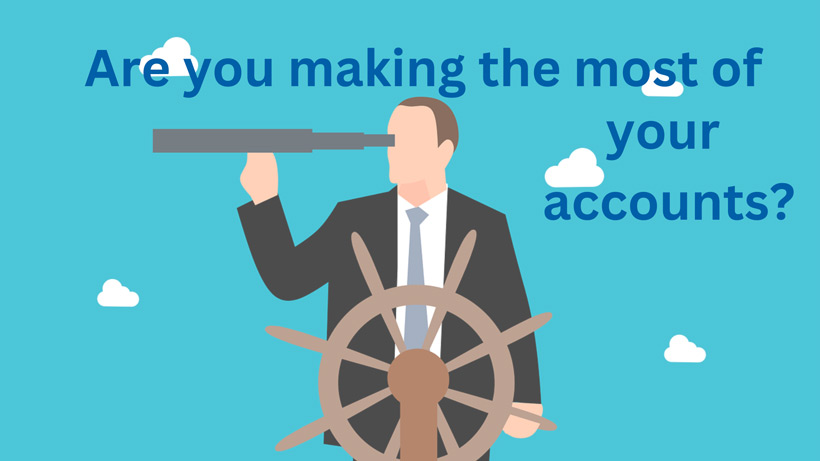Are you making the most of your accounts?

It's that time of year again, when accountants start to nag you about completing your accounts to enable your tax returns to be submitted. With personal tax returns due by 31st January, most business owners need to have the business accounts done to ensure their personal tax obligation is at its most advantageous.
Many small limited companies have a business year end that coincides with the financial year – i.e. 1 April – 31 March – but if your year end falls any time before the end of August, you really ought to start thinking about getting your business accounts prepared.
The effort of delay isn't worth the cost
Ideally, you should be completing your business accounts long before any deadlines so that you can plan ahead. This gives you time to ensure you have enough money in the bank to pay your Corporation Tax and that your personal tax position is the best it can be.
There's no hint that any flexibility will be extended this year, as in previous years due to the Covid pandemic – the deadlines are all back to normal.
Creative excuses aren't worth the effort of investing time in. HMRC has seen them all before! These are a few that people have tried to run with in the past:
- My pet goldfish died (self-employed builder)
- I had a run-in with a cow (Midlands farmer)
- After seeing a volcanic eruption on the news, I couldn't concentrate on anything else (London woman)
- My wife won't give me my mail (self-employed trader)
- My husband told me the deadline was 31 March, and I believed him (Leicester hairdresser)
- I've been far too busy touring the country with my one-man play (Coventry writer)
- My bad back means I can't go upstairs. That's where my tax return is (a working taxi driver)
- I've been cruising round the world in my yacht, and only picking up post when I'm on dry land (South East man)
- Our business doesn't really do anything (Kent financial services firm)
- I've been too busy submitting my clients' tax returns (London accountant)
All of these people and businesses received a £100 penalty for filing late. It's important to note that NONE of them were successful!
Knowledge is power
There's more to your annual accounts than paying tax - accounts are part of your business key performance indicators (KPIs). The longer after the actual year end your accounts are prepared the more historical they are – and that means that any decisions you need to make in relation to your business's financial health are delayed.
A profitable business is not just about dishing out invoices and staying on top of debt-collecting. It's not even just about cashflow – although that is fairly critical. Knowing how your money is generated and whether you could improve income, cashflow and investment will ensure you make better business decisions – sooner rather than later.
You can see whether the business is performing better or worse than before and whether income and expenditure are keeping up with inflation.
Understanding your accounts – and discussing these with your accountant – can mean you're equipped to stay in business, regardless of whether the country is in recession or not.